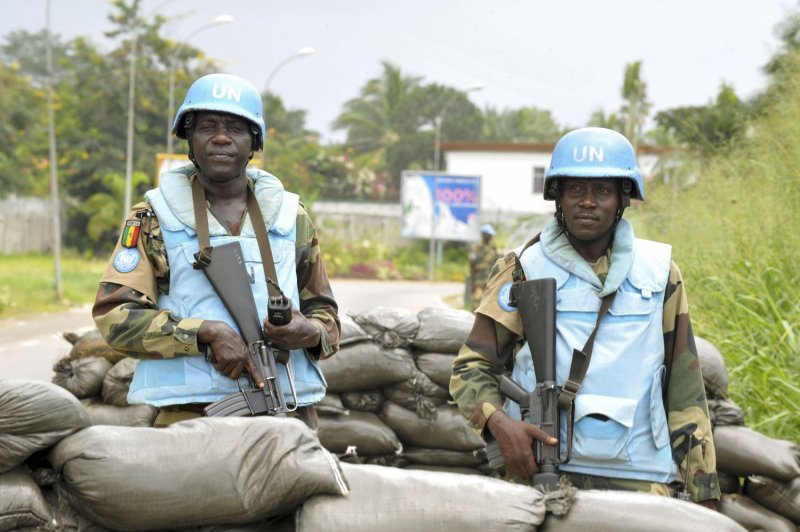1 of 3 | Officers of the UN Operation in IVORY COAST (UNOCI) arrive on the scene after Abidjan’s Hotel du Golf was attacked by forces loyal to former Ivorian President Laurent Gbagbo on April 10, 2011. The Golf Hotel is where internationally recognized new president, Alassane Ouattara, has been residing under the protection of UNOCI forces, since winning elections in late 2010 that Mr. Gbagbo has refused to concede. UPI/Basile Zoma/UN |
License Photo
BRUSSELS, June 24 (UPI) -- Human Rights Watch said a decision from the International Criminal Court to probe post-election violence in Ivory Coast doesn't reach far enough.
The chief prosecutor at the International Criminal Court asked ICC judges for permission to launch an investigation into possible war crimes and crimes against humanity alleged to have been committed in Ivory Coast since November.
Ivory Coast was pushed to the brink of civil war following a political stalemate that last from November to April. The international community recognized Alassane Ouattara as the winner of a November election though incumbent President Laurent Gbagbo refused to stand down.
Elise Keppler, a senior justice counsel at Human Rights Watch, said the prosecutor's decision was needed to hold those responsible for the post-election violence accountable.
"It will be important that ICC investigations go beyond the latest abuses, though, and address terrible crimes committed over the past decade," she said in a statement.
A U.S. national emergency was declared for the Ivory Coast in 2006 to deal with what the White House said was an "unusual and extraordinary threat" to national security interests.
Gbagbo signed a peace deal with rebel leaders in 2003 following a civil war that divided the country. The deal collapsed in 2004, however, and by 2006, Gbagbo was challenging decisions by the U.N. Security Council to strengthen the power of the prime minister as skirmishes with opposition forces intensified.
The White House in a statement said post-2002 conflicts in the Ivory Coast resulted in the "massacre" of civilians, human rights abuses and fatal attacks on peacekeeping forces.





